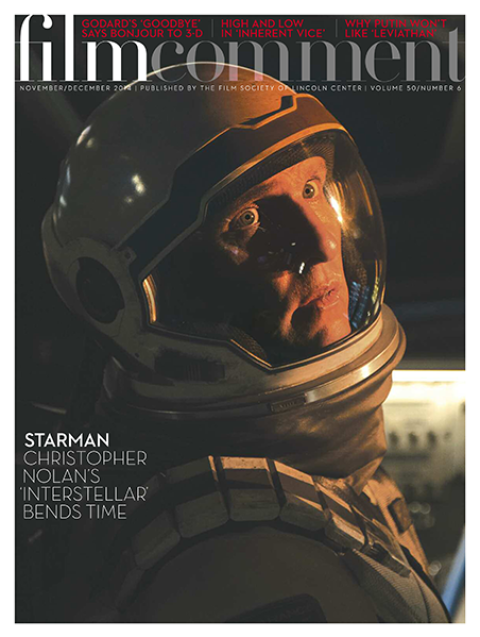
Benedict Cumberbatch cultists aside, theatergoers who saw Derek Jacobi play Alan Turing in 1986 in Hugh Whitemore’s Breaking the Code may balk at seeing a Hollywoodized biopic that covers much the same ground. Except for one crucial sleight of script, The Imitation Game largely replicates the structure of Whitemore’s play. Both cover Turing’s budding as a math genius and his love of his doomed soulmate Christopher Morcom at Sherborne School, his cracking of Nazi Germany’s Enigma ciphers at Bletchley Park during World War II, his complex relationship with a female fellow cryptanalyst, and the criminalization of him as an unashamed gay man that preceded his suicide in 1954.
Although the BBC film of Breaking the Code was conventionally directed and its production values poor by 1996 standards, it preserved Jacobi’s virtuoso turn and augmented it with crafty performances by Richard Johnson, Prunella Scales, Amanda Root, and Harold Pinter. Whitemore’s TV adaptation retained from the play its daring soliloquys—the kind forbidden in mainstream movies—which opened windows into Turing’s psyche. Viewable on YouTube (as of press time), it will remain the essential Turing drama even if The Imitation Game gets among the Oscars.
Norwegian director Morten Tyldum’s solid English-language debut has been packaged as a tony period drama with an ardent straight-gay non-romance and a polemical edge. The spine of the film is Turing’s struggle to crack the Enigma, a key aim being to decode intercepted messages containing orders for the U-boats decimating North Atlantic merchant convoys. To do so he has to navigate the minefield of personal animus and bureaucratic obstructions laid by Bletchley commander Alastair Denniston (Charles Dance). The narrative framework, however, is grounded in scenes of Turing’s persecution as a gay man.

The film begins in medias res. While the screen is still black, in a seemingly metacinematic gesture, Turing voices a demand that whoever’s out there concentrate on what he has to say. When the narrative eventually folds back on this pronouncement, it transpires that he is speaking to the by-the-book Manchester police detective Nock (Rory Kinnear), whose investigation of a burglary at Turing’s home has led to the mathematician being charged with “gross indecency,” a euphemism for homosexual acts that were punishable by imprisonment until the relevant 1885 law was repealed in 1967. By the time it’s revealed that Nock is the listener, and that the story is being “seen” from his perspective, he has begun to regret his part in Turing’s downfall. (Alun Armstrong’s equivalent cop in Breaking the Code merely dismisses it as “a sad business.”) Screenwriter Graham Moore’s use of Nock’s POV to envelop Turing’s account of his Bletchley experiences is not only elegant but effective since Kinnear’s increasingly sympathetic performance emphasizes the film’s anti-homophobic message.
The Imitation Game wants for verisimilitude. Wartime England should look dingier, and Turing’s friendship with his smitten mathematician colleague Joan Clarke (Keira Knightley) needn’t lurch into melodrama. Arrogant, testy, and vulnerable, Cumberbatch’s Turing is the most convincing of the real-life Bletchleyites. Dance makes a blustering heavy of Denniston, who attempts to sabotage Turing’s electromagnetic “bombe” machine, designed to decipher Enigma-encrypted Morse messages. Knightley invests Clarke with overtly fiery glamour (though her defiance of GCHQ’s sexist culture is handled amusingly). Mark Strong is a droll human enigma as MI6 chief Stewart Menzies. Matthew Goode plays Hugh Alexander, the Bletchley operations manager, as a volatile ladykiller who warms to the iconoclastic Turing when Turing’s results justify his repudiation of Bletchley’s lumbering code-breaking methodology. (By 1943, Turing’s bombes were cracking 84,000 Enigma messages a month.)
If there’s a whiff of The Avengers about this kind of typage, its confinement to the Bletchley sequences prevents it from trivializing Turing’s now iconic status as a home-front British wartime hero second only to Churchill. The glossing-up of the story is excusable if one allows that a dourly realist approach would likely alienate multiplex audiences hitherto unaware of Turing’s achievement—not least as the father of the digital computer—and his unforgivable destruction.








